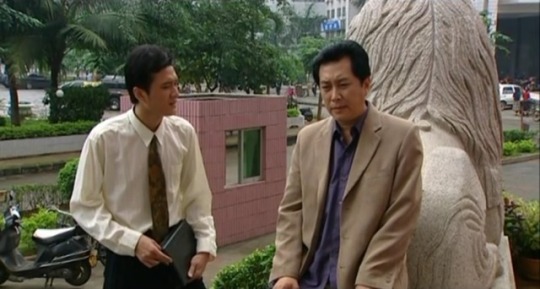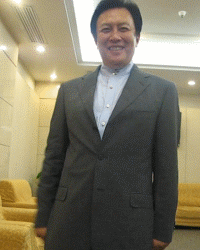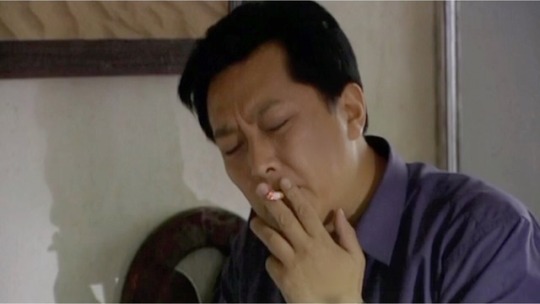#tang guoqiang
Text
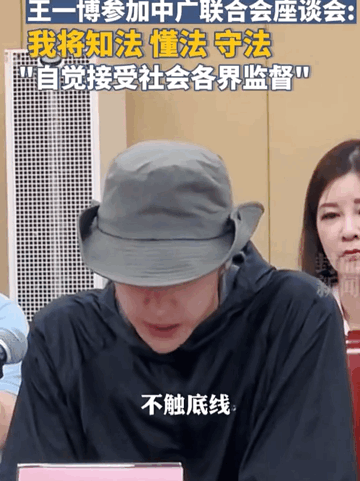
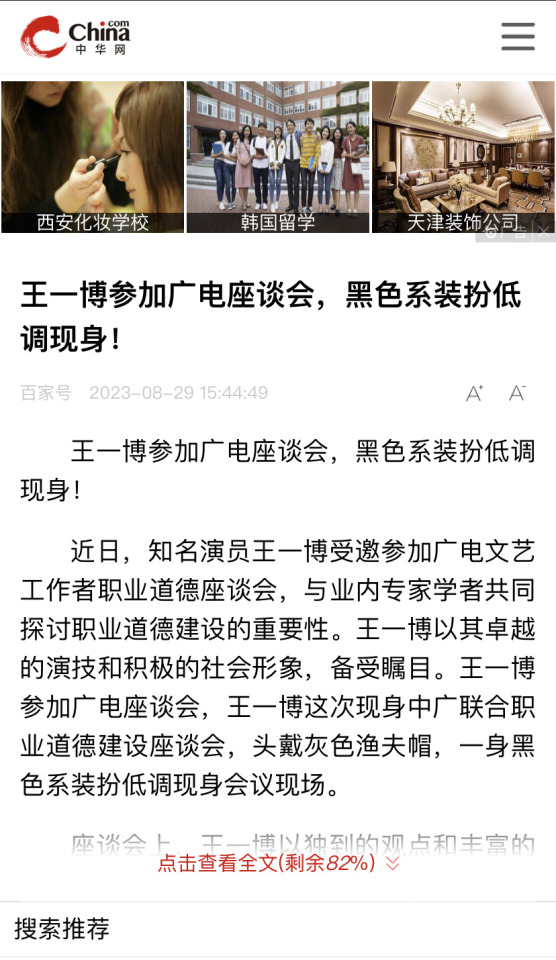
Wang Yibo participated in the symposium of the China Canton Federation: “I will know the law and obey the law ; consciously accept the supervision of all sectors of society”
{article source}
Recently, well-known actor Wang Yibo was invited to participate in a symposium on professional ethics for radio and television literary and art workers, and discussed the importance of professional ethics construction with experts and scholars in the industry. Wang Yibo has attracted much attention for his outstanding acting skills and positive social image.
At the symposium, Wang Yibo actively participated in the discussion with his unique perspective and rich experience, and shared with the participants his experience and insights on the road of performing arts. He emphasized the importance of the professional ethics of literary and art workers to the healthy development of the industry, and called on the majority of practitioners to use good professional ethics as a background, shape a good social image, and contribute to the prosperity of the literary and artistic industry.
Everyone knows that Wang Yibo, as a literary and art worker, has participated in a symposium on the construction of radio and television professional ethics. During the filming of "Bright Road" this year, he participated in a video conference wearing a costume. This time it is a collective activity of literary and art workers. From the participants at the scene, it can be seen that Wang Yibo is obviously the youngest one.
We saw Zhang Kaili, Tang Guoqiang, Wang Jinsong and other senior actors at the scene. In the group photo, Wang Yibo looked very cute and he stood very seriously, completely different from himself on the screen and in the camera. This is the first time we have seen Wang Yibo like this.
Being able to represent young actors to participate in the symposium, Wang Yibo not only has both popularity and professional ability, but also has professional ethics, serious dedication, self-discipline and humility, and his words and deeds are highly recognized.
Participating in the symposium requires sharing experience. Wang Yibo not only shared his experience with people in the same industry, but also poured out some difficulties encountered in his work. His speech was not only full of ideas, but also sincere, which made people feel his deep attention and serious attitude to the construction of professional ethics.
#i wanna hear his whole speech please thank you#well i have to say that he is one person who actually walks the talk when it comes to professional ethics in movies#the amount of integrity he implements i just—— your faves could never 😌😌😌#take a look at how his 3 movies were rolled out …. no controversy and followed the rules.#wang yibo#let’s go wang yibo 💪🏻💪🏻💪🏻
61 notes
·
View notes
Video
youtube
Masiwei - Humble Swag (Live Performance) https://youtu.be/WeseN1Gck5c Humble Swag the album by Masiwei out now: https://masiwei.lnk.to/HumbleSwag 00:00 候鸟 Bird 01:25 内幕 For Your Eyes Only 02:52 Humble Swag 04:08 你我几兄弟 Brothers 04:43 登机 Boarding 05:58 长城 Great Wall 07:21 亚特兰蒂斯 Atlantis Production Company: ELEVISION Director/Creative: Ving Executive Producers: Ving, Wang Han 1st AD: Zhang Shengjie 2nd AD: Li Sifan Producer: Jasmine Yang Assistant Producer: Yang Yanzhe Script Supervisor: Jiang Yiwen Director of Photography: Huo Bojun 1st AC: Zhang Kai 2nd AC: Peng Tao, Xiao Jin, Zhang Shaoyang Production Designer: Pensh King P.D Assistant: Xu Yalong, Zhu Rui Props Master: Niu Rong Props Assistant: Wang Ruixuan, Zheng Tao, Liu Rui, Hu Yaowen, Yang Hui, Xu Jie, Deng Jianyin, Feng Dan Gaffer: Zhou Zemin Best Boy: Guo Jian, Chen Bo, Luo Wen, Kuang Miao, Liu Qiang, Wang Chun, Luo Er Stylist: Dai Qing Costumer: Zhang Jun, Yang Xue Make up: Feng Xuejiao, Wang Maocheng Swing Gang: Huang Kaixin, Yu Houchao, Zeng Guoqiang, Li Xiong, Tang Decai Recordist: Lao Diao Creative: Deng Xiaoying Editor: Zhang Yingxu Colorist: Zhang Yingxu Material Design: Goekika Online: Qin Tian BTS: Qin Tian Visual Effects: Fan Qiubai Still Photographer: Tie Shao Follow Masiwei http://instagram.com/masiwei1993 http://twitter.com/MASIWEI1993 Subscribe to 88rising http://88rising.lnk.to/subscribe Follow 88rising http://instagram.com/88rising http://twitter.com/88rising http://facebook.com/88rising Join the community https://discord.gg/88rising #Masiwei #HumbleSwag 88rising
0 notes
Photo
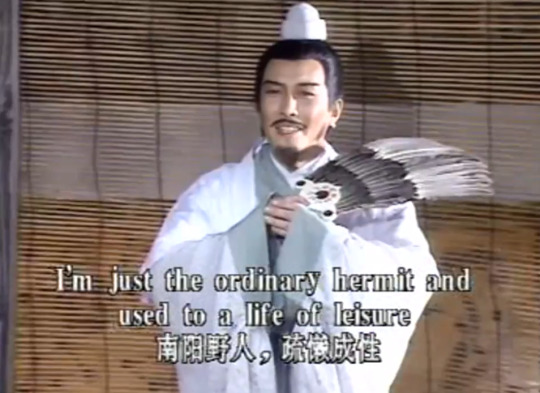




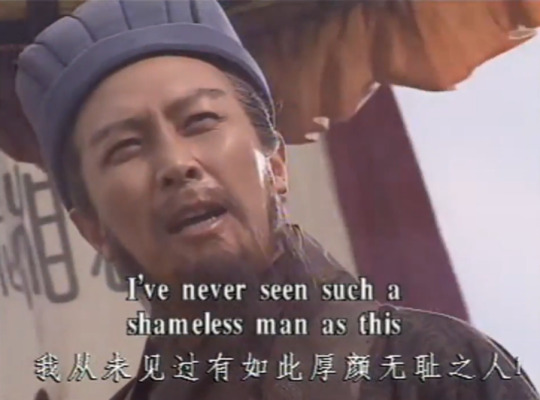
Zhuge Liang reaction image pack
#romance of the three kingdoms#1994#three kingdoms#roast master#zhuge liang#kongming#chinese#subtitles#reactions#reaction image#cdrama#relatable#humor#insults#tang guoqiang
231 notes
·
View notes
Text
youtube
The Founding of a Republic is a 2009 Chinese historical film commissioned by China's film regulator and made by the state-owned China Film Group (CFG) to mark the 60th anniversary of the People's Republic of China. The film was directed by Huang Jianxin and China Film Group head Han Sanping.
The film retells the tale of the Communist ascendancy and triumph, and has a star-studded cast including Andy Lau, Ge You, Hu Jun, Leon Lai, Zhang Ziyi, Donnie Yen, Jackie Chan, Jet Li, Zhao Wei, and directors Jiang Wen, Chen Kaige and John Woo, many of whom make brief cameo appearances. The leading roles are played by actors equally renowned in China, such as Tang Guoqiang and Zhang Guoli.
#the founding of a republic#chinese revolution#chinese civil war#mao zedong#zhou enlai#tang guoqiang#liu jing#jackie chan#jet li#andy lau#movies#socialist references
27 notes
·
View notes
Photo

决胜时刻(2019)
0 notes
Video
youtube
三国演义 孔明舌战群儒。
0 notes
Text
China, Desperate to Stop Coronavirus, Turns Neighbor Against Neighbor
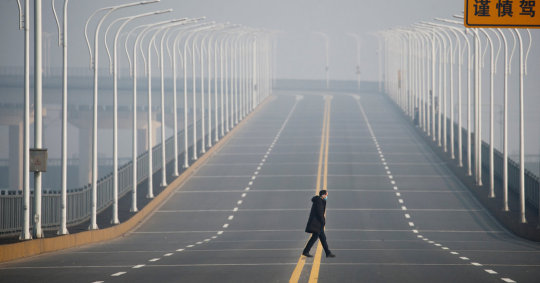
GUANGZHOU, China — One person was turned away by hotel after hotel after he showed his ID card. Another was expelled by fearful local villagers. A third found his most sensitive personal information leaked online after registering with the authorities.These outcasts are from Wuhan, the capital of Hubei Province, where a rapidly spreading viral outbreak has killed more than 360 people in China and sent fear rippling around the world. They are pariahs in China, among the millions unable to go home and feared as potential carriers of the mysterious coronavirus.All across the country, despite China’s vast surveillance network with its facial recognition systems and high-end cameras that is increasingly used to track its 1.4 billion people, the government has turned to familiar authoritarian techniques — like setting up dragnets and asking neighbors to inform on one another — as it tries to contain the outbreak.It took the authorities about five days to contact Harmo Tang, a college student studying in Wuhan, after he returned to his hometown, Linhai, in eastern Zhejiang Province. Mr. Tang said he had already been under self-imposed isolation when local officials asked for his personal information, including name, address, phone number, identity card number and the date he returned from Wuhan. Within days, the information began to spread online, along with a list of others who returned to Linhai from Wuhan.Local officials offered no explanation but returned a few days later to fasten police tape to his door and hang a sign that warned neighbors that a Wuhan returnee lived there. The sign included an informant hotline to call if anyone saw him or his family leave the apartment. Mr. Tang said he received about four calls a day from different local government departments.“In reality there’s not much empathy,” he said. “It’s not a caring tone they’re using. It’s a warning tone. I don’t feel very comfortable about it.”Of course, China has a major incentive to track down potential carriers of the disease. The coronavirus outbreak has put parts of the country under lockdown, brought the world’s second-largest economy to a virtual standstill and erected walls between China and the rest of the world.Still, even some government officials called for understanding as concerns about prejudice spread. Experts warned such marginalization of an already vulnerable group could prove counterproductive, further damaging public trust and sending those who should be screened and monitored deeper underground.“We are paying attention to this issue,” Ma Guoqiang, the Chinese Communist Party secretary of Wuhan, said at a news conference there last Tuesday.“I believe that some people may label Hubei people or report them, but I also think most people will treat Hubei people with a good heart.”While networks of volunteers and Christian groups have been vocal about offering help, many local leaders have focused efforts on finding and isolating people from Hubei. On big screens and billboards, propaganda videos and posters warn people to stay inside, wear masks and wash hands.In the northern province of Hebei, one county offered bounties of 1,000 yuan, or about $140, for each Wuhan person reported by residents. Images online showed towns digging up roads or deputizing men to block outsiders. Some apartment-building residents barricaded the doors of their towers with China’s ubiquitous ride-share bikes.In the eastern province of Jiangsu, quarantine turned to imprisonment after authorities used metal poles to barricade shut the door of a family recently returned from Wuhan. To get food, the family relied on neighbors who lowered provisions with a rope down to their back balcony, according to a local news report.Scared for the safety of his children as conditions at home worsened, Andy Li, a tech worker from Wuhan traveling with his family in Beijing, rented a car and began driving south to Guangdong, an effort to find refuge with relatives there. In Nanjing, he was turned away from one hotel before getting a room at a luxury hotel.There he set up a self-imposed family quarantine for four days, until local authorities ordered all people from Wuhan to move to a hotel next to the city’s central rail station. Mr. Li said the quarantine hotel did not seem to be doing a good job isolating people. Food delivery workers came and went, while gaps in the doors and walls allowed drafts in.“They’re only working to separate Wuhan people from Nanjing people,” Mr. Li said. “They don’t care at all if Wuhan people infect each other.”To help, he stuffed towels and tissues under the door to block the drafts.“I’m not complaining about the government," Mr. Li said. “There will always be loopholes in policy. But in a selfish way I’m just really worried about my children.”Across the country, the response from local authorities often resembles the mass mobilizations of the Mao era rather than the technocratic, data-driven wizardry depicted in propaganda about China’s emerging surveillance state. They have also turned to techniques Beijing used to fight the outbreak of SARS, another deadly disease, in 2002 and 2003, when China was much less technologically sophisticated.Checkpoints to screen people for fevers have popped up at tollbooths, at the front gates of apartment complexes and in hotels, grocery stores and train stations. Often those wielding the thermometer guns don’t hold them close enough to a person’s forehead, generating unusually low temperature readings. Such checks were worthless, for instance, against one man in the western province of Qinghai, whom police are investigating on suspicion that he covered up his symptoms to travel.Authorities have used computerized systems that track ID cards — which must be used to take most long-distance transport and stay in hotels — to round up people from Wuhan. Yet one article about the ID system in The People’s Daily, the mouthpiece for the Chinese Communist Party, included a plea to all passengers on affected flights and trains to report themselves.The campaigns have turned life upside down in unexpected ways. Jia Yuting, a 21-year-old student in Wuhan, had already been back in her hometown in central China for 18 days — longer than the 14-day quarantine period — when she got news her grandfather was sick in a nearby village. During a visit to see him, she followed local instructions broadcast on speakers in the village and registered her personal details with the local Communist Party Committee.When a middle-school teacher randomly reached out to her on the messaging app WeChat to inquire about her health, she realized her data had been leaked online and was spreading on a list. Later, she received a threatening phone call from a man who lived in her home city.“Why did you come back Wuhan? You should have stayed there. You Wuhan dog!” she recalled him saying.Authorities offered her no explanation for how it happened, and insisted such leaks did not disrupt her regular life. Three days after her visit to the village, her grandfather died. Local officials there immediately told her family that she would not be allowed to return to the village to pay her final respects at a funeral that was taking place more than three weeks after she had returned from Wuhan.“I feel that the villagers are ignorant and the government isn’t helping; instead it’s leaking the information everywhere without telling them that I don’t have any symptoms,” she said, adding that she felt guilty she could not be there to comfort her grandmother.“I was very close to my grandfather. I think it’s not humane, it’s cruel.”Lin Qiqing contributed research.
Read the full article
#1technews#0financetechnology#0technologydrive#03technologysolutions#0dbtechnology#1/0technologycorp#2000stechnology#3technologybets#3technologycircuithallam#3technologydrive#3technologydrivemilpitasca95035#3technologydrivepeabodyma#3technologydrivewestboroughmassachusetts01581#3technologyltd#3technologyplace#3technologywaynorwoodma#3dtechnews#3dtechnologynews#3mtechnologynews#4technologycomponentsofcrm#4technologydr#4technologydrive#4technologydrivelondonderrynh03053#4technologydrivepeabodyma#4technologydrivepeabodyma01960#4technologydrivewestboroughma#4technologywaysalemma#5technologycareers#5technologydrive#5technologydriveirvineca
0 notes
Link
Source: https://www.youtube.com/watch?v=fycZaW8jmrk
China's Initiatives in the Arctic: The Economic Perspective
With one-quarter of the world’s reserves of gas and oil in the Arctic, the Arctic region is considered to hold significant economic potential (Yang). China’s 1.3 trillion USD Belt and Road Initiative aims to exploit such resources by allocating “$12.1 billion to the flagship Yamal liquefied-natural-gas project, $25 billion to a 4,857-kilometre oil pipeline between eastern Siberia and the Pacific Ocean” along with billions more for other ambitious projects (Yang).
The thawing of the Arctic has opened up numerous more economic opportunities as well. What took almost 50 days from China to Rotterdam via the Suez Canal could be reduced by half by taking the new Northern Sea Route, which formed as the ice caps receded (Feng). Securing this route for commercial purposes is China’s primary goals for expanding its trade market. The Northwest Passage over Canada is also a potential new trade route which would replace the route from Shanghai to New York through the Panama Canal. The successful voyage of a Chinese research vessel through the Northwest Passage was celebrated as “open[ing] a new sea lane for China” (Feng).
Shorter trade routes for an export-driven country like China will possibly be a boon to its rapidly diversifying economy. To establish themselves in Northern regions, China is forming partnerships with several European countries. China’s pursuit for improved relations with Greenland is also an economic strategy for their possible rights to Arctic ports and rare resources (“The Emerging Arctic”). China also signed a free trade agreement Iceland and built Reykjavik’s largest embassy. Furthermore, according to Tang Guoqiang, China's former ambassador to Norway, the Arctic is predicted to become “the world's largest storehouse of biological protein” (Guilford).
Since China has the largest fish production business in the world, acquiring new fishing oceans is an especially appealing idea. Because there are no specific protection guidelines for international waters, China could exploit the Arctic oceans with little restriction. However, the issue falls into the Arctic Council’s hands, which is currently creating an accord to prevent fishing in Arctic waters before scientists can assess fish populations (Guilford). Even with numerous economic opportunities, China’s access to the Arctic is limited due to its restricted voice as an observer member in the Arctic Council.
For the moment, China’s foreign policy interests revolve mostly around research facilities. In Shanghai, China built a joint Arctic research center with institutes from five Nordic countries (Feng). Beijing recently increased its investments in Arctic research too, spending $60 billion annually, along with the purchase of a second research vessel at the price of $300 million (“The Emerging Arctic”).
By doing so, China makes it clear to the global community that it realizes the economic potential of the Arctic.
-------------------------------------------------------------------------------------------
Sources:
https://www.cfr.org/interactives/emerging-arctic?cid=otr_marketing_use-arctic_Infoguid
e%2523!#!/emerging-arctic?cid=otr_marketing_use-arctic_Infoguide%2523!.
Yang, Hong. “Arctic At Risk From Vast Belt And Road Development.” Nature, vol. 570, 2019.
doi.org/10.1038/d41586-019-01977-y.
www.nytimes.com/2019/05/06/climate/pompeo-arctic-china-russia.html.
Moe, Arild. “Asian Countries and Arctic Shipping: Policies, Interests and Footprints on Governance.” Arctic Review On Law And Politics, vol. 10, 2019, pp.24-48. doi.org/10.23865/arctic.v10.1374.
0 notes
Text







This project I combine serval ideas inspired by my long-time study aboard experience and an ancient Chinese wooden building principle. Also, I try to break the boundary of the unicity of goblet. In order to achieve this project, I have been testing different perspectives of the functionality,spiritual and cultural. I careful study Proportion,mechanics,matieral and lifestyle, in order to achieve the eastern aesthetic that I understand.
Nowadays, cultural transmission is a very important challenge for Chinese people, what should we inherit? How to inherit? Chinese civilization does not have a modality to inherit, from the period of Tang, Song, Yuan, Ming, Qing, each period has its own development modality. If we do not inherit the modality, what we can inherit?
Every year, I go back to China for visiting my family, and I can see how fast China economic is growing, also I am growing too, but except money, what we lack? I think we lack confidence, so why we lack confidence? because we lack content.
As a long-term studying aboard Chinese art student, what we learn all is from western, but we are different from those western people who paint traditional Chinese painting, we know China and the Chinese society, we have a double meaning. Comparing with Guoqiang Cai, Yongbing Huang, They and we can achieve our value in the western frame, “they” success cannot be done in China, so I can call us, we are the artist under the system of western art.
Why I have to prove I am Chinese? I find out Chinese people face some problems, at the same time, I also see the same problem when I meet people from all over the world. Based on people own inherent limitations, everyone has own perspective because of the perspective, people need to confirm “who am I”, it requires a lot of reference points. Why Chinese people have to prove I am Chinese?
Firstly, from utilitarian perspective,if we built up our own Chinese symbol system,it has highly Commercial value.
Secondly, from self-identity perspective, normally a person who has self-identity can have culture standpoint. Culture standpoint can bring value evaluation and value selection.
Thirdly, from a belief perspective, if you have a view of nature and life when you in the process of interaction between man and nature, society and nature,you will have a direction and bottom line.
Although people have common cognitive Ability, but due to people come from a different place and culture background, like people live in Edinburgh, they do not have the same cognitive ability to compare people live in Beijing, the cognitive decides people how to live.
I think a good design project, it should have an atmosphere itself. The atmosphere includes the view of value, method, technique and etc. Design is not politic, we are not shouting slogans. we should express in moisten things silently.
0 notes
Text
China, Desperate to Stop Coronavirus, Turns Neighbor Against Neighbor
GUANGZHOU, China — One person was turned away by hotel after hotel after he showed his ID card. Another was expelled by fearful local villagers. A third found his most sensitive personal information leaked online after registering with the authorities.
These outcasts are from Wuhan, the capital of Hubei Province, where a rapidly spreading viral outbreak has killed more than 360 people in China and sent fear rippling around the world. They are pariahs in China, among the millions unable to go home and feared as potential carriers of the mysterious coronavirus.
All across the country, despite China’s vast surveillance network with its facial recognition systems and high-end cameras that is increasingly used to track its 1.4 billion people, the government has turned to familiar authoritarian techniques — like setting up dragnets and asking neighbors to inform on one another — as it tries to contain the outbreak.
It took the authorities about five days to contact Harmo Tang, a college student studying in Wuhan, after he returned to his hometown, Linhai, in eastern Zhejiang Province. Mr. Tang said he had already been under self-imposed isolation when local officials asked for his personal information, including name, address, phone number, identity card number and the date he returned from Wuhan. Within days, the information began to spread online, along with a list of others who returned to Linhai from Wuhan.
Local officials offered no explanation but returned a few days later to fasten police tape to his door and hang a sign that warned neighbors that a Wuhan returnee lived there. The sign included an informant hotline to call if anyone saw him or his family leave the apartment. Mr. Tang said he received about four calls a day from different local government departments.
“In reality there’s not much empathy,” he said. “It’s not a caring tone they’re using. It’s a warning tone. I don’t feel very comfortable about it.”
Of course, China has a major incentive to track down potential carriers of the disease. The coronavirus outbreak has put parts of the country under lockdown, brought the world’s second-largest economy to a virtual standstill and erected walls between China and the rest of the world.
Still, even some government officials called for understanding as concerns about prejudice spread. Experts warned such marginalization of an already vulnerable group could prove counterproductive, further damaging public trust and sending those who should be screened and monitored deeper underground.
“We are paying attention to this issue,” Ma Guoqiang, the Chinese Communist Party secretary of Wuhan, said at a news conference there last Tuesday.
“I believe that some people may label Hubei people or report them, but I also think most people will treat Hubei people with a good heart.”
While networks of volunteers and Christian groups have been vocal about offering help, many local leaders have focused efforts on finding and isolating people from Hubei. On big screens and billboards, propaganda videos and posters warn people to stay inside, wear masks and wash hands.
In the northern province of Hebei, one county offered bounties of 1,000 yuan, or about $140, for each Wuhan person reported by residents. Images online showed towns digging up roads or deputizing men to block outsiders. Some apartment-building residents barricaded the doors of their towers with China’s ubiquitous ride-share bikes.
In the eastern province of Jiangsu, quarantine turned to imprisonment after authorities used metal poles to barricade shut the door of a family recently returned from Wuhan. To get food, the family relied on neighbors who lowered provisions with a rope down to their back balcony, according to a local news report.
Scared for the safety of his children as conditions at home worsened, Andy Li, a tech worker from Wuhan traveling with his family in Beijing, rented a car and began driving south to Guangdong, an effort to find refuge with relatives there. In Nanjing, he was turned away from one hotel before getting a room at a luxury hotel.
There he set up a self-imposed family quarantine for four days, until local authorities ordered all people from Wuhan to move to a hotel next to the city’s central rail station. Mr. Li said the quarantine hotel did not seem to be doing a good job isolating people. Food delivery workers came and went, while gaps in the doors and walls allowed drafts in.
“They’re only working to separate Wuhan people from Nanjing people,” Mr. Li said. “They don’t care at all if Wuhan people infect each other.”
To help, he stuffed towels and tissues under the door to block the drafts.
“I’m not complaining about the government,” Mr. Li said. “There will always be loopholes in policy. But in a selfish way I’m just really worried about my children.”
Across the country, the response from local authorities often resembles the mass mobilizations of the Mao era rather than the technocratic, data-driven wizardry depicted in propaganda about China’s emerging surveillance state. They have also turned to techniques Beijing used to fight the outbreak of SARS, another deadly disease, in 2002 and 2003, when China was much less technologically sophisticated.
Checkpoints to screen people for fevers have popped up at tollbooths, at the front gates of apartment complexes and in hotels, grocery stores and train stations. Often those wielding the thermometer guns don’t hold them close enough to a person’s forehead, generating unusually low temperature readings. Such checks were worthless, for instance, against one man in the western province of Qinghai, whom police are investigating on suspicion that he covered up his symptoms to travel.
Authorities have used computerized systems that track ID cards — which must be used to take most long-distance transport and stay in hotels — to round up people from Wuhan. Yet one article about the ID system in The People’s Daily, the mouthpiece for the Chinese Communist Party, included a plea to all passengers on affected flights and trains to report themselves.
The campaigns have turned life upside down in unexpected ways. Jia Yuting, a 21-year-old student in Wuhan, had already been back in her hometown in central China for 18 days — longer than the 14-day quarantine period — when she got news her grandfather was sick in a nearby village. During a visit to see him, she followed local instructions broadcast on speakers in the village and registered her personal details with the local Communist Party Committee.
When a middle-school teacher randomly reached out to her on the messaging app WeChat to inquire about her health, she realized her data had been leaked online and was spreading on a list. Later, she received a threatening phone call from a man who lived in her home city.
“Why did you come back Wuhan? You should have stayed there. You Wuhan dog!” she recalled him saying.
Authorities offered her no explanation for how it happened, and insisted such leaks did not disrupt her regular life. Three days after her visit to the village, her grandfather died. Local officials there immediately told her family that she would not be allowed to return to the village to pay her final respects at a funeral that was taking place more than three weeks after she had returned from Wuhan.
“I feel that the villagers are ignorant and the government isn’t helping; instead it’s leaking the information everywhere without telling them that I don’t have any symptoms,” she said, adding that she felt guilty she could not be there to comfort her grandmother.
“I was very close to my grandfather. I think it’s not humane, it’s cruel.”
Lin Qiqing contributed research.
from WordPress https://mastcomm.com/china-desperate-to-stop-coronavirus-turns-neighbor-against-neighbor/
0 notes
Text
Cell stiffness may indicate whether tumors will invade
Engineers at MIT and elsewhere have tracked the evolution of individual cells within an initially benign tumor, showing how the physical properties of those cells drive the tumor to become invasive, or metastatic.
The team carried out experiments with a human breast cancer tumor that developed in the lab. As the tumor grew and amassed more cells over a period of about two weeks, the researchers observed that cells in the interior of the tumor were small and stiff, while the cells on the periphery were soft and more swollen. These softer, peripheral cells were more apt to stretch beyond the tumor body, forming “invasive tips” that eventually broke away to spread elsewhere.
The researchers found that the cells at the tumor’s edges were softer because they contained more water than those in the center. The cells in the center of a tumor are surrounded by other cells that press inward, squeezing water out of the interior cells and into those cells at the periphery, through nanometer-sized channels between them called gap junctions.
“You can think of the tumor like a sponge,” says Ming Guo, assistant professor of mechanical engineering at MIT. “When they grow, they build up compressive stresses inside the tumor, and that will squeeze the water from the core out to the cells on the outside, which will slowly swell over time and become softer as well — therefore they are more able to invade.”
When the team treated the tumor to draw water out of peripheral cells, the cells became stiffer and less likely to form invasive tips. Conversely, when they flooded the tumor with a diluted solution, the same peripheral cells swelled and quickly formed long, branchlike tips that invaded the surrounding environment.
Above, an early stage tumor is shown. Courtesy of the researchers.
Above, an late stage tumor is shown. Courtesy of the researchers.
The results, which the team reports today in the journal Nature Physics, point to a new route for cancer therapy, focused on changing the physical properties of cancer cells to delay or even prevent a tumor from spreading.
Guo’s co-authors include lead author and MIT postdoc Yu Long Han, along with Guoqiang Xu, Zichen Gu, Jiawei Sun, Yukun Hao, Staish Kumar Gupta, Yiwei Li, and Wenhui Tang, from MIT; Adrian Pegoraro and Yuan Yuan of the Harvard John A. Paulson School of Engineering and Applied Sciences; Hui Li of the Chinese Academy of Sciences; Kaifu Li, Hua Kang, and Lianghong Teng of Capital Medical University in Beijing; and Jeffrey Fredberg of the Harvard T. H. Chan School of Public Health in Boston.
Cell tweezing
Scientists suspect that cancer cells that migrate from a main tumor are able to do so in part because of their softer, more pliable nature, enabling the cells to squeeze through the body’s labrynthine vasculature and proliferate far from the initial tumor. Past experiments have shown this soft, migratory nature in individual cancer cells, but Guo’s team is the first to explore the role of cell stiffness in a whole, developing tumor.
“People have looked at single cells for a long time, but organisms are multicellular, three-dimensional systems,” Guo says. “Each cell is a physical building block, and we’re interested in how each single cell is regulating its own physical properties, as the cells develop into a tissue like a tumor or an organ.”
The researchers used recently developed techniques to grow healthy human epithelial cells in 3D and transform them into a human breast cancer tumor in the lab. Over the next week, the researchers watched as the cells multiplied and coalesced into a benign primary tumor that comprised several hundred individual cells. Several times throughout the week, the researchers infused the growing number of cells with plastic particles.
They then probed each individual cell’s stiffness with optical tweezers, a technique in which researchers direct a highly focused laser beam at a cell. In this case, the team trained a laser on a plastic particle within each cell, pinning the particle in place, then applying a slight pulse in a attempt to move the particle within the cell, much like using tweezers to pick an egg shell out from the surrounding yolk.
Guo says the degree to which researchers can move a particle gives them an idea for the stiffness of the surrounding cell: The more resistant the particle is to being moved, the stiffer a cell must be. In this way, the researchers found that the hundreds of cells within a single benign tumor exhibit a gradient of stiffness as well as size. The interior cells were smaller and stiffer, and the further the cells were from the core, the softer and larger they became. They also became more likely to stretch out from the spherical primary tumor and form branches, or invasive tips.
To see whether altering cells’ water content affects their invasive behavior, the team added low-molecular-weight polymers to the tumor solution to draw water out from cells, and found that the cells shrank, became more stiff, and were less likely to migrate away from the tumor — a measure that delayed metastasis. When they added water to dilute the tumor solution, the cells, particularly at the edges, swelled, became softer, and formed invasive tips more quickly.
As a last test, the researchers obtained a sample of a patient’s breast cancer tumor and measured the size of every cell within the tumor sample. They observed a gradient similar to what they found in their lab-derived tumor: Cells in the tumor’s core were smaller than those closer to the periphery.
“We found this doesn’t just happen in a model system — it’s real,” Guo says. “This means we may be able to develop some treatment based on the physical picture, to target cell stiffness or size to see if that helps. If you make the cells stiffer, they are less likely to migrate, and that could potentially delay invasion.”
Perhaps one day, he says, clinicians may be able to look at a tumor and, based on the size and stiffness of cells, from the inside out, be able to say with some confidence whether a tumor will metastasize or not.
“If there is an established size or stiffness gradient, you can know this will cause trouble,” Guo says. “If there’s no gradient, you can maybe safely say it’s fine.”
This research was supported, in part, by the National Cancer Institute.
Cell stiffness may indicate whether tumors will invade syndicated from https://osmowaterfilters.blogspot.com/
0 notes
